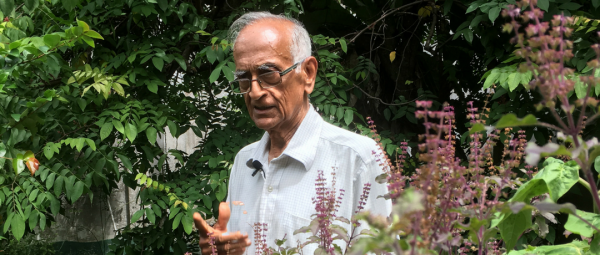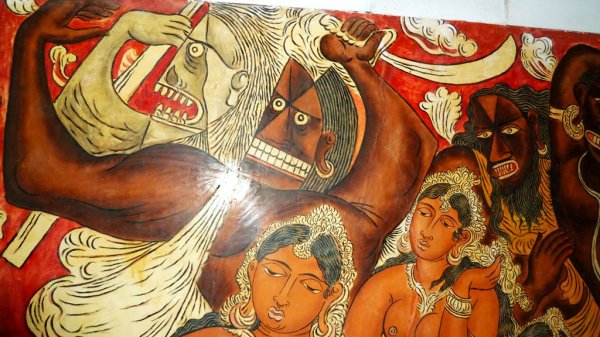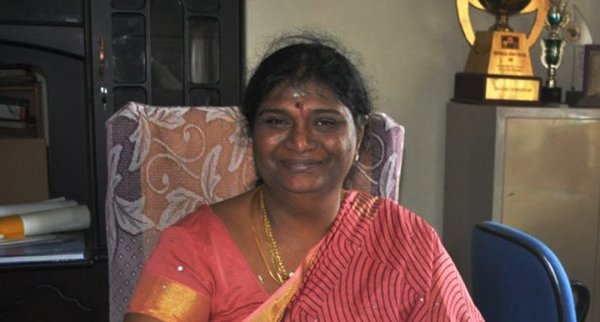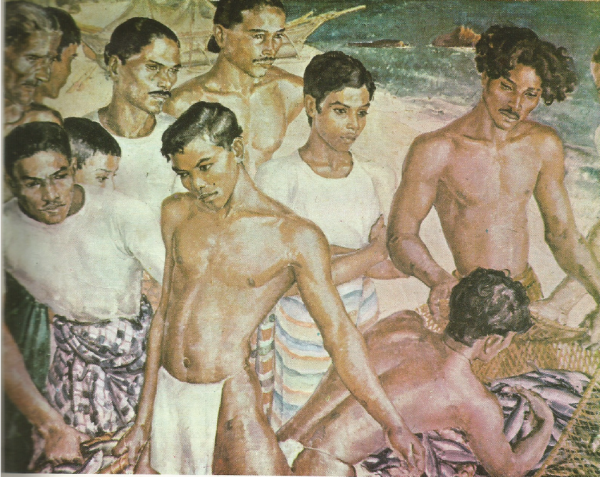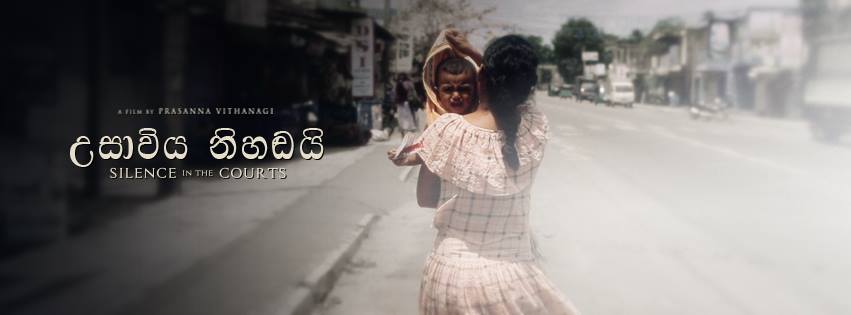
Silence In The Courts (උසාවිය නිහඬයි) is a controversial documentary film co-produced by H.D. Premasiri and Prasanna Vithanage, who is also the film’s director. The film boldly cinematises the corruption and injustice found in Sri Lanka’s judicial system. The documentary-style movie recounts a real-life incident that took place in the 1990s, depicting the conduct of legal personalities, who are not only trusted by the public to protect the rule of law and uphold justice, but are also expected to maintain high standards of ethics in their personal lives.
The Film
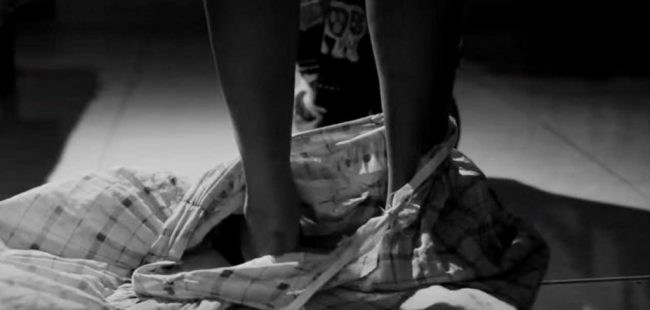
The film provides stark yet disturbing insight into how those charged with upholding the law can themselves be perpetrators of injustice. Image courtesy puthithu.com
The film recounts how two women from a farming village are raped by a Magistrate presiding over cases involving their husbands as accused parties. Following this, the women seek justice from the Judicial Service Commission (JSC), Bar Association, and even from the President of the country at that time. But when the institutions are non-responsive, the story is recounted to an editor of a leading newspaper (Victor Ivan of Raavaya), who investigates the incident. Silence In The Courts is, essentially, about the fight for justice where the oppressors are, ironically, from within the country’s justice system itself.
The Controversy
Colombo District Court Judge N.U. Gunasekara temporarily halted the movie by an interim injunction, after the lawsuit filed by the movie’s actual protagonist ‒ the Magistrate (former District Court Judge Lenin Rathnayaka). The injunction, however, was removed, postponing the case till January 19, 2017, allowing for the public to view the movie. The film was screened at several film festivals, including Sakhalin International Film Festival, South Asian Himal Festival – Nepal, San Francisco South Asian Film Festival, Seattle South Asian Film Festival, Ottawa Human Rights Festival, Toronto Human Rights Film Festival, and Melbourne Indian International Film Festival.
On November 30, a screening and a Q&A session with the director was held at the Sri Lanka Press Institute in Colombo 05, which brought to light the role that the cinema industry can play in exposing social injustices.
‘Like A Rotten Onion’
The film’s director, Prasanna Vithanage, revealed that they would like to proceed with the case filed against them, as this is still an unfinished journey.
“Victor Ivan is the person who disclosed the case,” said director Vithanage, speaking at the Q&A session. “What I did was dig up a closed case and now I think Mr. Ivan will bring the baton on to get the justice done to these two women and to himself.”
The director also explained why he made a documentary film rather than a feature film which is his area of expertise:
“I had a discussion with the movie crew and Mr. M.D. Mahindapala. When I brought up the idea of doing a feature, what Mr. Mahindapala emphasised was people will not ‘believe’ the incident and I will not be able to include the characters like former President Kumaratunga and former Attorney General Sarath N. Silva to make a more powerful impact. Before making the movie, all the information about this incident was out in the public domain, in newspapers and in the book of Victor Ivan. As I researched this, I realised how rotten the system was; it was like peeling a rotten onion, from lawyers to the governmental bodies, many parties were involved.”
‘A Film-maker’s Responsibility’
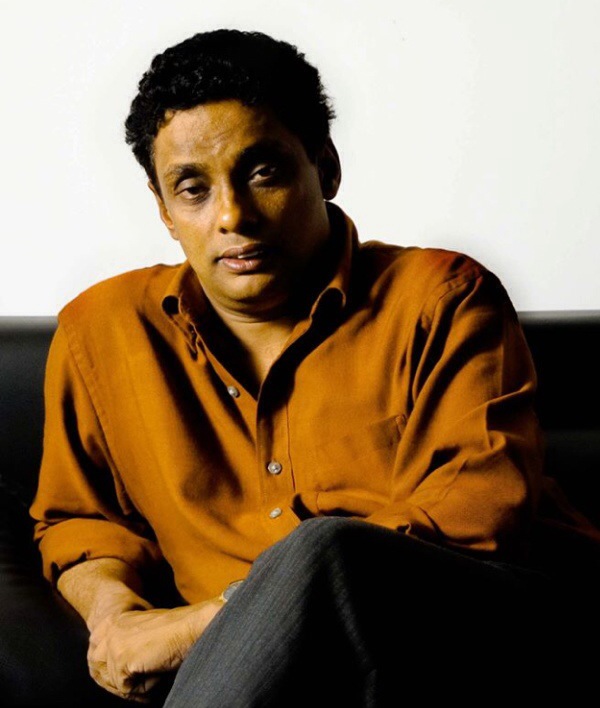
Prasanna Vithanage believes that film-makers, too, can help in the fight for justice. Image courtesy dbsjeyaraj.com
It was the insight into these levels of corruption, Vithanage said, that brought about the realisation that filmmakers, too, could do something about it.
“When at that time Mr. Ivan asked for the report of the three-member panel, the Judicial Service Commission declined to give him a copy though it was already published that the magistrate was found guilty on all accounts by the tribunal. The AG at that time passed this to the Judicial Service Commission and when Mr. Ivan questioned about their process, the answer was that there is an ongoing inquiry and they will notify him. He has all the letters from the JSC and still they have not notified him. As film-makers, I think we have a duty to reveal this gap of law. The magistrate says in his affidavit that he is innocent and he has not been found guilty by any court. We have to ask ‘why’? There was an inquiry. So in the future this will go on,” said Vithanage.
In revealing the reasons as to why the women had not filed a criminal complaint against the Magistrate with the Police, Vithanage said, “When I personally asked the women, they said that they were afraid to do so. They couldn’t trust the Magistrate, how could they trust the Police?”
Vithanage also spoke of the conflict he faced in asking the first victim, Kamalawathie, to face the cameras and narrate her story so many years after the crime had taken place.
“Making her recall a nauseating event from 20 years ago, even when you watch the scenes from the movie, it disgusts you,” he said, adding, “So when she refused, I quite understood her situation.”
He also said that it felt ‘immoral’ to make her recall the incidents again and again, which is why he used her final testimony. “From the questions by the panel of judges, to my point of view, it is male centric. Even the law questioned her from a boundary limited by males, so that her experience might not be grasped by majority very well,” he said, adding that her voice as a woman who had been wronged, was never properly communicated to the world at large.
Seeking Justice
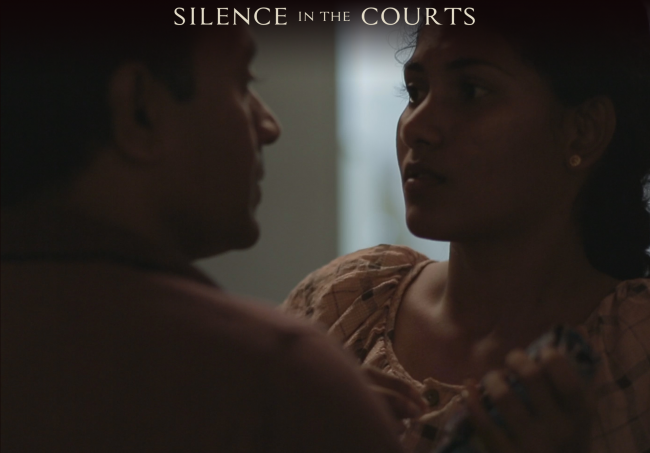
A still from the film. Image courtesy silenceinthecourts.com
“After watching the movie, many people questioned whether this incident was a rape or not,” said Vithanage, pointing out that the Magistrate had used his power to have sexual intercourse with her four times, without her consent.
Vithanage concluded the discussion by explaining how even women’s rights activists had remained silent, and how Buddhist bhikkhus had sided with the magistrate at that time, even though the victims were Buddhists as well.
“These two women from the most rustic areas of Sri Lanka were brave enough to stand up for themselves. They reached every possible government body. Their family lives were ruined. No matter how their husbands bragged about protecting them, one woman’s husband left her. Yet, they did not remain silent,” he said. In spite of this, their voices were overruled by those more powerful. What remains to be seen, he said, is whether these women would find justice ‒ because it is that, he said, that would be the film’s ultimate success.
Roar Recommends
We recommend this movie as a must-watch for every Sri Lankan to understand the inner workings of both the justice system as well as journalism in Sri Lanka. Even though the public screening of the movie ended on December 1 due to the court case, Vithanage says that it will be broadcast on Dialog TV, on the 7th Channel, in the near future, and that they will also be arranging free shows nationwide. (A free screening will be held tomorrow from 2:30 p.m. onwards at Vidyartha Ranga Shalawa, Horana). We recommend you visit Prasanna Vithanage’s Facebook Page for further updates, and check out the reviews.
You can also watch the trailer here.



